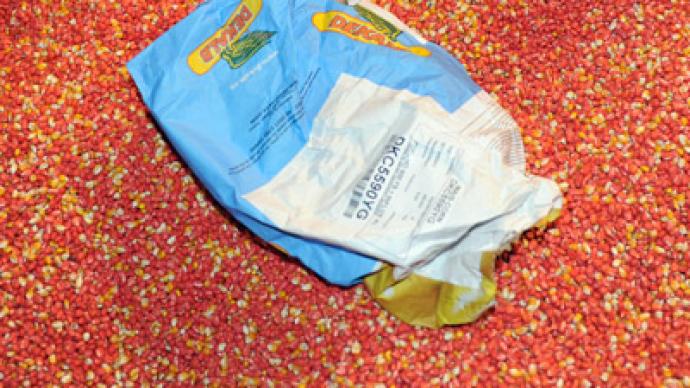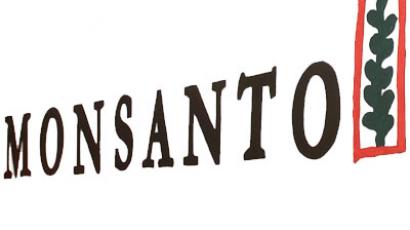Walmart to start selling unlabeled insecticide-laced GMO corn from Monsanto

America’s largest bio-agriculture company and the biggest retailer in the country are joining forces, but a happy ending isn’t necessarily in sight. Walmart will soon be stocking their shelves with GMO corn made by Monsanto.
Millions of Americans shop at Walmart, but that doesn’t mean that they all know what they’re getting as they check out in shopping centers across the country. The retail giant says they won't advertise which of their products are made with genetically modified organisms, or GMOs, which could become a big problem very soon. Zack Kaldveer explains in an editorial published by the California Progress Report this month that Walmart will soon sell a special factory-made corn manufactured by Monsanto, which while it will allow most of Americans more easy access to affordable food, will also fill them with unknown insecticides: the very GMO crop Walmart will be selling has been genetically engineered to include chemicals right inside the corn.Voters in California will decide later this year if retailers on the West Coast will be legally bound to correctly label all foodstuffs sold in shopping centers that are made from lab-alerted, genetically modified foods. Notwithstanding that ruling, one of the largest retailers in the world says that they won’t worry about advertising their GMO foods as the product of scientists in the meantime because, simply, they don’t see enough of a reason to do as such."After closely looking at both sides of the debate and collaborating with a number of respected food safety experts, we see no scientifically validated safety reasons to implement restrictions on this product," company representative Dianna Gee tells the Chicago Tribune. Critics of that stance say that the explanation is flawed, though. With GMOs still being a relatively new science and industry, the true safety of foods made in labs has not been thoroughly tested because the long-lasting effects have yet to be analyzed. That’s why people in California are rallying to pass Proposition 37, a legislation that will require that products sold in the state are labeled as GMOs if they fit the description."How would you ever know if there are adverse health effects?" Michael Hansen, a senior scientist at Consumers Union, the policy arm of Consumer Reports, adds to the Tribune. "There has been a doubling of food allergies in this country since 1996. Is it connected to genetically engineered foods? Who knows, when you have no labeling? That is a problem."Monsanto, one of the biggest biotech companies in the world, isn’t that okay with efforts to pass the bill, though. They have so far donated hundreds of millions of dollars towards a campaign established to stop the bill, No on 37. But in the latest incident to unfold in the saga, Monsanto isn’t exactly offering suggestions to come to a compromise either. According to the New York Times, Monsantor Director of Corporate Communications Phil Angel said, ''Monsanto should not have to vouch for the safety of biotech food. Our interest is in selling as much of it as possible. Assuring its safety is the FDA's job.''The FDA, on the other hand, disagrees. California Progress Report reveals that, on the record, the Food and Drug Administration insists, “Ultimately, it is the food producer who is responsible for assuring safety.”Now unless the Proposition 37 passes, Walmart says that they will not go out of their way to inform their customers as to what exactly they are getting either, leaving millions of Americans to shop at the country’s most popular store without being aware of what risks are at hand.Opponents of the effort to label foods insist that passing Prop 37 will leave America’s agriculture and food shopping economy in shambles because it will scare consumers, though. "Prop. 37 leaves consumers with the incorrect impression that there is something wrong with GE crops, when that is not true,” No on 37 spokesperson Kathy Fairbanks tells the Associated Press.Walmart agrees, and now plans on letting all GMOs go onto their shelves unlabeled at the 4,000 or so stores across this country. With Walmart growing from having 6 percent to a full quarter of nationwide grocery sales in just a decade and a half, though, a win for them can eventually mean a loss for anyone in America who is concerned with what’s going into their bodies.“It’s an epic food fight between the pesticide companies and consumers who want to know what’s in their food,” Yes on 37 media director Stacy Malkan tells the Associated Press,














